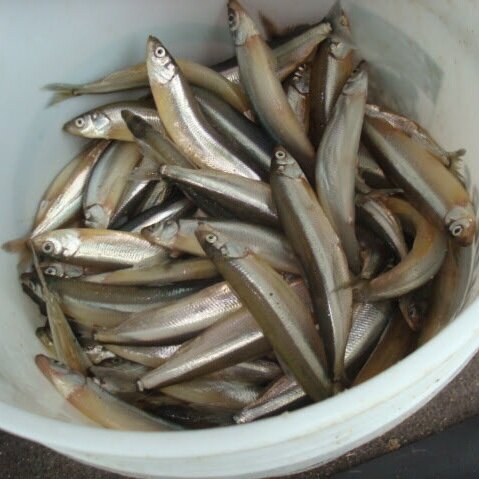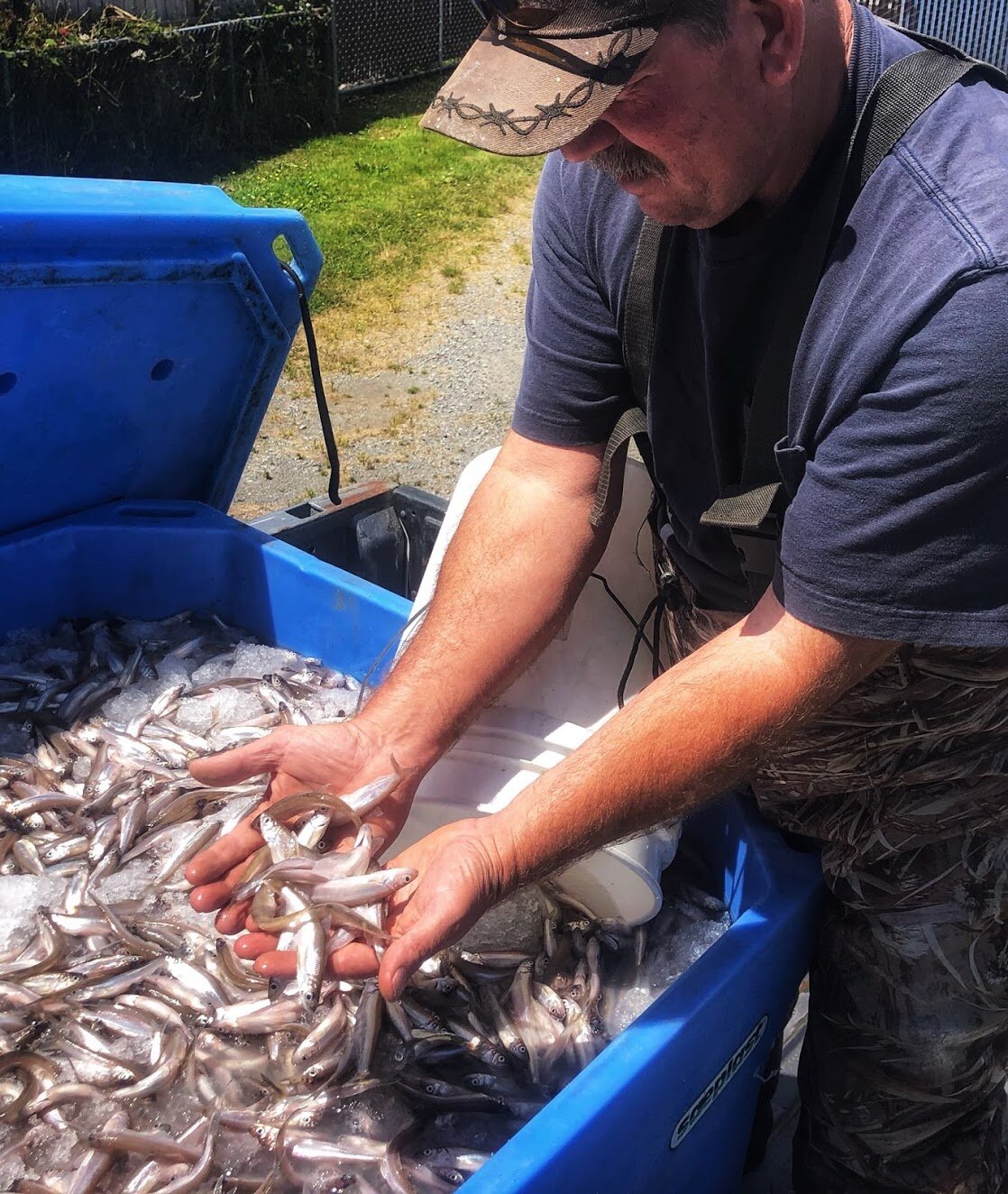Surf Smelt
(spring - summer - fall)
Occasionally called day smelt or silver smelt.
The Meat
Sing in me oh muse... What can I say? This is my favorite of all fishes--to catch and to eat. Fry, bake or broil, in that order. They are also quite good pickled or smoked. Truth is, if you are getting surf smelt, they were caught by me. And if they were caught by me they were caught on Monday or Tuesday (my two fishing days) so they will be insanely fresh. Still smelling of cucumbers? Probably not, but if there is even the faint whisp of cucumber odor you know they are less than 24 hours out of the water.
Prep
Cut the heads off and gut them. To de-bone them watch this video:
Gear and fishery info
90 percent of surf smelt are caught from shore, by means of Hawaiian casting nets. Very few surf smelt are sold commercially. The few restaurants that have bought them from me always rave about them, but they are hard as hell to predict and there is only a market for their cousin the night smelt. Restaurants in this country tend to not want to pay employees to clean a lot of small fish. This is why they like night smelt, which can be thrown in the frier whole. Among sport fishermen in California, the surf smelt is king of small fishes. In some years more surf smelt are caught than any other species of sport caught fish.
#KnowYourFisherman
Our surf smelt are mostly caught by Dude Gifford using an A-frame dip net, based on a Native American design that has been used on the California coast for many thousands of years. I make them, you can find them on our store too.
Fish Nerdism 101
Yes it's true, several hours out of the water surf smelt smell exactly like cucumbers. In fact all the members of the true smelt clan smell like cucumbers when fresh out of the water. This scent fades by the hour. Surf smelt are beach spawners and as such are caught in the swash on local beaches by crazy men armed with small hand thrown nets. They were evidently very popular in Native American days as attested to by Malcolm Margolin in his seminal classic: The Ohlone Way.
Health concerns
This is about the healthiest fish you can eat. Low on the foodchain, high in all the good stuff, low in all the bad stuff.
Parting Shots
Please go peruse the annals of Monkeyface News. Where you will find a truly Proustian amount of verbiage on the subject of the “precious” smelt, Hypomesus pretiosus.
Recipes
Facts
Scientific Name: Hypomesus pretiosus
Habitat: Juvenile surf smelt rear in nearshore areas while feeding on plankton. Little is known about the movements of adult surf smelt, until their return to spawning grounds at the age of one or two years.
Diet: indiscriminate plankton feeders, eating copepods, amphipods, crab larvae, marine worms and larval fish.
Size: schooling forage fish that reach up to 9 inches in length.
Range: from Prince William Sound, Alaska to Long Beach, California.
Class: Actinopterygii






Fresh, sparkling night smelt - what a treat! If you've ever dipped for these yourself you know how magical these little creatures are and how they smell a little bit like cucumber fresh from the sea. (Photo courtesy of Viola Toniolo)